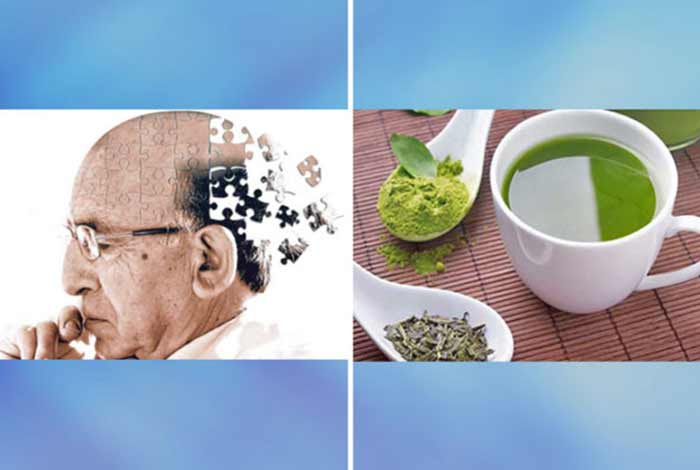
Green Tea May Have Cure for Alzheimer’s, Heart Disease and Stroke

A newly discovered compound in green tea is thought to possess amazing properties for curing Alzheimer’s disease or preventing heart disease.
The amazing health benefits of green tea require no introduction. Scientists at Lancaster University and the University of Leeds have added a new feather to this cap. They have discovered a specific compound in the marvelous green tea, which can be used for dissolving the plaques that get accumulated in the blood vessels, leading to heart disease and other cardiovascular disorders.
This wonder compound is epigallocatechin-3-gallate (EGCG). In the recent times, a lot of research has been done on discovering the properties of this promising polyphenol compound, such as anti-inflammatory action and providing protection against neuronal damage. Some of the researchers working on discovering a cure for Alzheimer’s have identified the potential of this compound in inhibiting the formulation of amyloid plaques in the brain.
This new study is focused on examining various ways in which EGCG affects amyloid plaques that can build up in the arteries. Atherosclerosis is a disease affecting the cardiovascular system of the body in which, amyloid deposits take place in the arteries that can lead to stroke or heart attack. These deposits are similar to those found in Alzheimer’s patients.
It was observed that EGCG has the ability to alter the structure of amyloid fibrils that are formed by a protein, called apolipoprotein A-1 (apoA-1), which is necessary for the development of amyloid deposits, associated with Alzheimer’s disease. The hypothesis here is that EGCG has the ability to successfully alter the form of amyloid fibrils; thereby, making it less toxic.
At this stage, the researchers have a load of caveats. The most important limitation is regarding the concentration of EGCG required for affecting the amyloid proteins, which is much higher than that obtained from a cup of green tea. As a matter of fact, green tea is found to have a few negative health effects when consumed in larger quantities, such as kidney stones. Therefore, researchers do not suggest drinking more than five cups of green tea each day.
Jeremy Pearson, a researcher at the British Heart Foundation, states that although the latest research is promising, it does not imply switching to green teas as of yet. This is because our body is capable of breaking down EGCG into smaller molecules.
This makes it difficult for the body to derive maximum benefits from a single cup of green tea. However, if the molecule is engineered slightly, it might be possible to synthesize new molecules that can be used to treating heart attack and stroke.
Tim Chico, a researcher from the University of Sheffield, is a bit skeptical about these new findings. He opined that while interesting results have been obtained, it is still too early to comment that this study will amount to anything in the future.
The scientists have not yet explored the ability of EGCG to cure any disease in humans or animals and whether there is any chance that high concentration of EGCG will cause the healthy cells to die.
This research is still in the bud and requires a lot of work before it actually blossoms. Nevertheless, this is a propitious step in the direction of finding a cure for Alzheimer’s disease, heart disease and stroke in something as popular and common as green tea.






